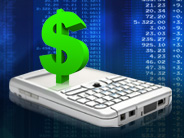Prepaid mobile payments unlock poor's buying power

Amid rising mobile penetration rates across many emerging countries, a growing segment of unbanked consumers with pent-up demand for online shopping experiences presents huge opportunities for telcos and credit card companies.
According to Leon Perera, CEO of Spire Research and Consulting, there is a segment of poorer consumers with no bank accounts, much less hold credit cards. They are, however, increasingly able to visit Web sites through common-use computers in villages, schools, and community centers or Web-enabled low-cost mobile device but are unable to buy from these retailers, he noted.

"Many of these consumers may not be destitute, but merely subsist in the informal economy in that they do not report their incomes. They could be waste collectors, illegal laborers or shop-keeper, etc, with some cash in hand but no bank account," Perera said.
"This segment of poorer consumers who cannot pay online is underserved, meaning that there is likely to be pent-up demand for online shopping experiences."
There are about four billion such people at the "base of the economic pyramid" who earn below US$3,000 per year and these people constitute a consumer market that is worth US$5 trillion, or about one-third of the United States' entire GDP (gross domestic product), according to Spire Research.
By providing this group of people the means to purchase items online, such as prepaid mobile credits, this would allow them to get products such as second-hand clothes, accessories, or household appliances more cheaply from auction sites, the CEO said.
"Also, let us not forget that prepaid mobile credits can be used not only to buy things but also to transfer money. For example, from a family member working in a town back to his family in the village--competing with remittance services, both organized and traditional," he added.
As such, he believed that that this customer segment presents huge market opportunities for mobile commerce providers, especially in the Asia-Pacific region.
The countries with the largest market potential for prepaid mobile credits would be those with big informal sectors--primarily India and Indonesia, and possibly China, Perera noted. Other potential markets, to a lesser extent, include Pakistan, Bangladesh, Vietnam, Thailand, the Philippines, Sri Lanka and Cambodia, he added.
Prepaid the way to go
Visa is one payments provider that recognizes the potential of this market, and has been making headway into this segment. The company was among the first to offer a mobile prepaid product targeting consumers in emerging countries such as Africa, Asia and Latin America.
It also acquired Fundamo, a Cape Town-based provider of emerging market mobile commerce technology, for US$110 million last June to bolster its capabilities. Visa then partnered MTN Group last November to roll out accounts in Nigeria and Uganda.
"We launched a mobile-based prepaid account which allows customers to withdraw money from ATMs, transfer money, pay bills and make purchases from a prepaid mobile account," a Visa spokesperson elaborated.
"We are now rolling this out with mobile network operators across Africa. We are also targeting to work with financial institutions and mobile operators to bring this mobile prepaid product to Asia-Pacific countries like Bangladesh and India," the spokesperson added.
MasterCard has also joined in the mobile payments fray, as it looks to gain a foothold in an industry valued by Juniper Research to be worth US$670 billion by 2015. Last week, it rolled out a similar initiative to target "underbanked" consumers in developing markets, which would allow them to have stored prepaid cards to conduct e-commerce payments, doing away with the need for a credit card or a bank account.
By doing so, it was helping mobile network operators and financial institutions expand and develop their offerings. "Our approach is to work with all leading players in the mobile money ecosystem to bring benefits of electronic payments to those who otherwise wouldn't have access to formal financial services," said Woo Mung Ki, group executive of mobile at MasterCard Worldwide.
American Express, meanwhile, has noted that the potential for digital payments, particularly in countries such as China and India, is set to grow rapidly. To capitalize on this, it had struck up a partnership with Chinese electronic payment service provider, Lianlian Group, in January 2012 to tap the market, said Matthew Lee, president of online and mobile of China enterprise growth at American Express.
"The Serve platform, which American Express will license to Lianlian Group, is expected to help power a new Lianlian Group digital wallet that consumers can use to top up mobile phone minutes, pay bills and purchase products or services," he added.
"By integrating Serve into its infrastructure, Lianlian Group is looking to bridge the gap between the limitations of paying by cash and the opportunities associated with digital commerce."
Market challenges to mitigate
However, Perera noted that while e-commerce in China was well-established, there will be challenges to tapping the market. "In China, any success will depend on the degree to which the government supports this, given the dominance of government-linked firms in the mobile carrier space," he said.
The CEO added that despite the great promise offered by the poorer consumer segment, there would also be many obstacles. "For starters, executing product delivery to remote villages with poor connectivity to urban hubs, providing post-sales support and dealing with requests for refunds [are challenges that need to be overcome]," he said.
Mobile payments service providers would also have to contend with any inevitable political backlash from consumers should people get cheated online, he added.